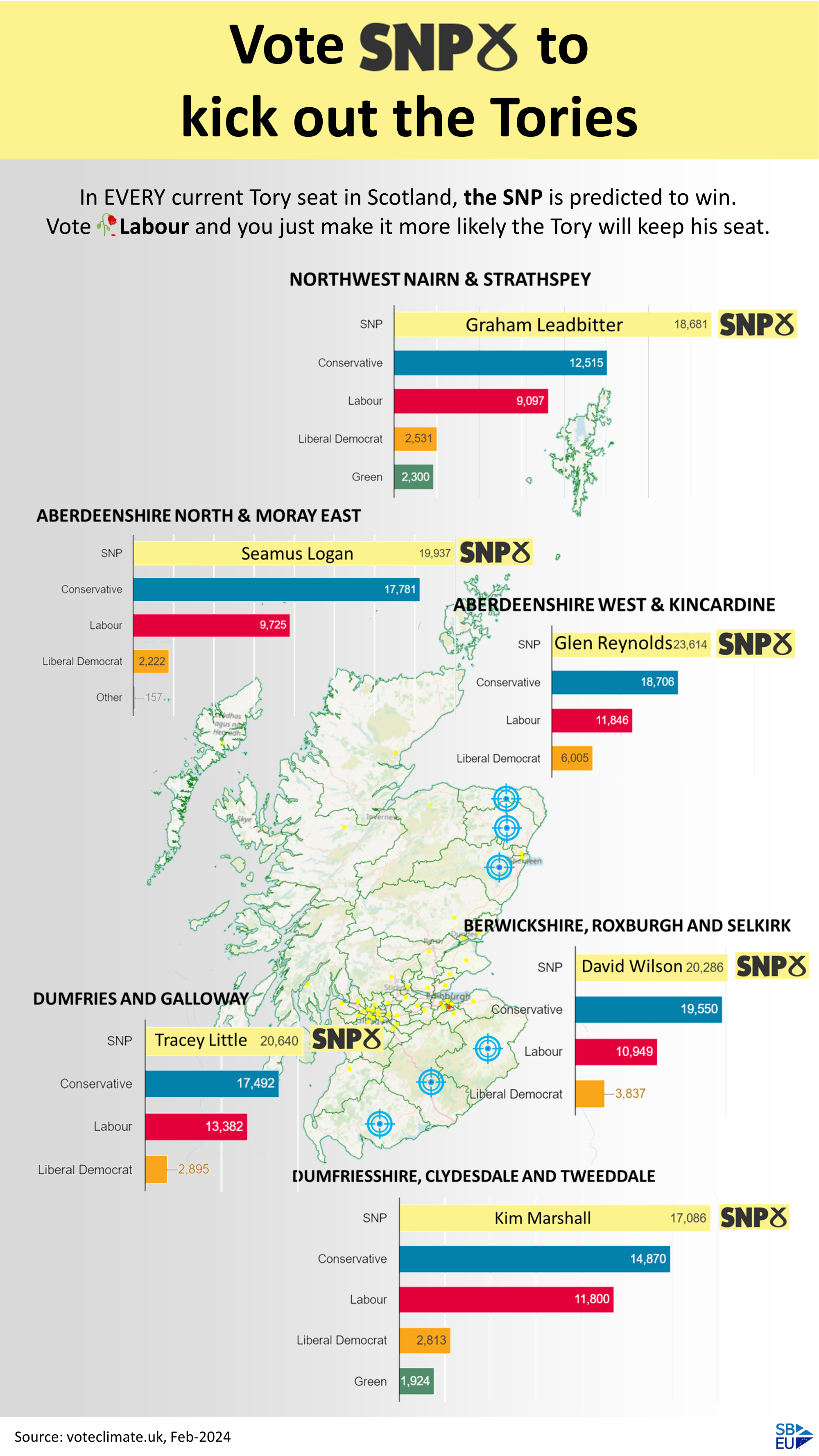In every current Tory seat in Scotland, the SNP is predicted to win. Vote Labour and you just make it more likely that the Tory will keep his seat.
Whilst the independence movement is not aligned to any one party, when it comes to removing Tory MPs from Scotland and supporting an Independence party, it makes sense to get behind the SNP. This is because the polls consistently predict the SNP to be the most popular party in Tory consitituences. Voting Labour – or any other party – simply reduces the liklehood that the SNP will win, and increases the liklehood that the Tory will keep his seat.
The Tories recognise this threat to them. Here’s a recent campaign leaflet from one of their consituencies.

Note: Westminster constituencies have been changed for the 2024 General Election. For the current crop of Tory MPs in Scotland they do not exactly match existing consitituencies. The visualisation uses the new consitituencies, and the data source uses estimating techniques to map between the old and new boundaries. Actual numbers will differ, but the basic analysis is valid.
A legacy voting system: FPTP
The reason for this situation is the UK Parliament’s legacy voting system – first past the post (FPTP). Hardly anyone still uses this system, and the reason is simple: With FPTP most votes don’t count.

Votes for the winning party count: all others do not. As a result parties aim their policies simply to get more votes than any other party – not to be attractive to most voters. In the UK Parliament this means that parties take sole power despite never getting most of the votes. They simply got more votes than the party that came second. In fact the last time a Westminter party got most of the votes was 1935!
When Scotland regains Independence it will most likely adopt Proportional Representation (PR) – like virtually every other modern democracy in Europe. PR means parties would get seats in proportion to the vote total across a region – or even the whole of Scotland. As long as a minimum number was reached, even the smaller parties would get seats. As a result the larger parties get fewer seats than they would under FPTP and generally must negotiate coalitions to take power. This negotiation means that policies will necessarily reflect a broader set of voters.
Sources
Voteclimate.uk, Feb-2024.

Leave a Reply